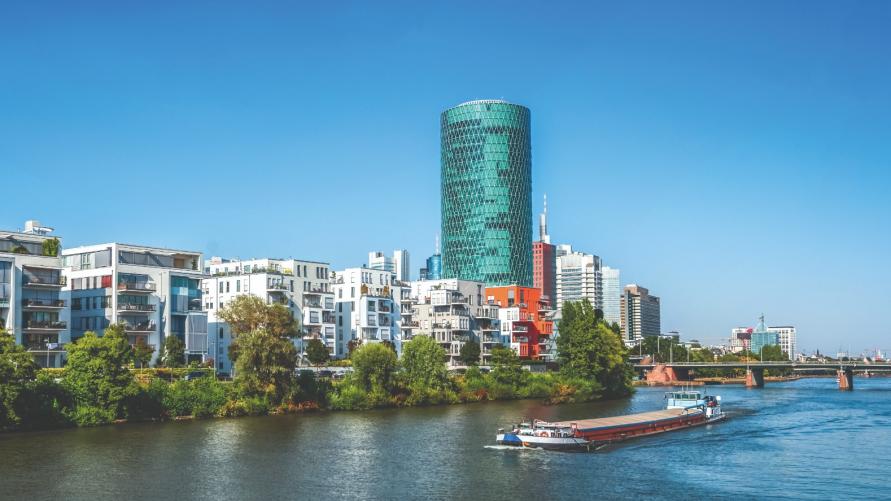
Foto: Sina Ettmer - stock.adobe.com
How to find the right place for you
One of the first things newcomers have to do is find somewhere to live. Housing in Frankfurt Rhine-Main is pretty affordable compared to other international cities, but you‘ll have to put in the effort to find the right place.
Housing is probably the most important thing to think about when you first move to the Rhine-Main region. Newcomers have to deal with lots of different, sometimes tricky questions. Will I still be able to enjoy the same quality of life I’m used to? What’s the best use of my budget? I need to find a location that meets my requirements. It’s important to get answers to these questions quickly. If you’re well informed and a bit lucky, your house hunting experience in Germany should go smoothly.
Before you start looking for a place, take a good look at your disposable income and set yourself a budget. The reality in Germany is that most people spend up to a third of their gross salary on rent. Roughly six out of 10 Germans rent their home, and that number’s even higher in major urban areas. The rent you pay depends on where the property is, what standard of building it is, how old it is and what the market value is. The more convenient the apartment or house is (i.e. if it’s close to public transport, shops or schools), the higher the rent will be.
When it comes to cost of living, Frankfurt and its surrounding area are usually somewhere in the middle of international tables. Based on a basket of goods (groceries, transportation, accommodation, schooling and entertainment), Frankfurt is considered significantly less expensive than London or Paris. When it comes to rent prices in the Rhine-Main region, you’ll find that housing is pretty much the same in Frankfurt, Wiesbaden, and most of the towns in the Taunus region (Bad Homburg, Bad Soden, Kronberg, Königstein and Hofheim). Just a heads-up for anyone new to Germany: apartments here are usually rented empty, not furnished. So, most apartments won’t have a stove, light fixtures, a dishwasher or a washing machine. It’s expected that tenants will have their own. Landlords in the Rhine-Main region have seen a lot of expats moving in, so they’re used to renting to them. They’re also starting to fit more apartments and houses with built-in kitchens and bathroom equipment. Another option is to rent furniture. There are two companies that can help you out with this: www.lyght-living.com and www.in-lease.com.
If you’re only going to be in Germany for a short while, it might be better for you to choose a fully furnished flat (möbliert). Frankfurt has a big international community, so it’s easy to find furnished apartments. Furnished apartments aren’t cheap, but if you crunch the numbers, you might find it’s cheaper to pay the extra monthly fee to live in one for a few months or years compared to buying new furniture, etc.
There are two main types of rent: kaltmiete, where you pay for heating, maintenance and other utilities separately, and warmmiete, where these costs are included in the rent. You’ll need to get electricity from the local utility company. Your utility bill will be based on your usage, but it’d be a good idea to ask the landlord what the previous tenants paid so you can get a rough idea of the additional monthly payments. There are some limits on how much the rent can go up, but the utilities can be increased at any time. Your utilities are billed twice a year, so your heating bill will be the same in winter and summer. The landlord can then make any necessary adjustments.
The housing market in Frankfurt and the Rhine-Main region is pretty tight, so if you’re on a budget, you probably won’t have a lot of choices. Frankfurt’s got some gorgeous restored buildings from the turn of the 20th century, but apartments in them are few and far between. Landlords are asking for and getting premium rent. As a general rule, the apartments here are well-constructed and in good condition, with modern insulation and plumbing.
If you decide to live in Frankfurt, you’ll probably end up living in an apartment. If you’re set on a house, it’s probably best to look in the outlying areas, like the Taunus. In Germany, there are three main types of houses: terraced houses (called Reihenhaus, abbreviated RH); semi-detached houses (called Doppelhaushälfte, abbreviated DHH); and standalone houses (called Einfamilienhaus, abbreviated EFH).
There are no set rules when it comes to size or layout. Three-bedroom houses are pretty standard. Houses are usually measured in square metres, rather than by the number of bedrooms. A house with around 130 sqm of living space is seen as average, while 260 sqm is considered very spacious.

Partner Portrait
AMADEUS Group: The Newcomers‘ Real Estate-Partner
Long-term value creation and growth through comprehensive services.

Partner Portrait
FrankfurtRheinMain: International experts
FrankfurtRheinMain GmbH International Marketing of the Region (FRM GmbH) is the official location marketing organization of the Frankfurt metropolitan region.
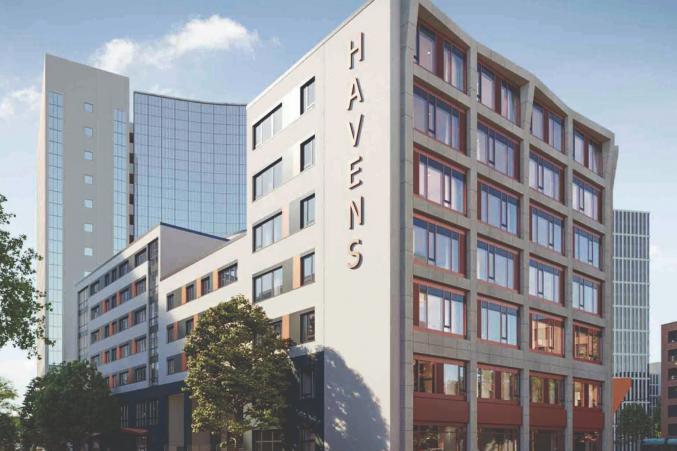
Partner Portrait
More than just an Apartment
Finding your place in a new city can be challenging, but HAVENS LIVING Frankfurt aims to make the process easier.
THE CONTRACT
In most cases, rent contracts are a pre-printed version of the document recommended by the Tenants Society of the State of Hessen (Mieterbund Hessen). Just a heads-up: most rental contracts say that the tenant has to renovate the apartment and get it back to its original state when the lease expires and before they leave. It’s important to make sure the contract specifies what needs to be redecorated or repaired.
All rental contracts can be cancelled at any time, with a three-month notice period. There are a few exceptions to this, though. German rental law is pretty complex, so it’s important to know your rights and responsibilities. It’s a good idea to get the contract checked by your company or a lawyer. If you do have trouble with your landlord, you can get legal advice and representation from an attorney or one of the several tenant advisory centres in the region. The membership fee of €50–70 also includes legal insurance, but there’s a three-month waiting period after you join before the insurance takes effect.
Deutscher Mieterbund Landesverband Hessen e.V.
Adelheidstraße 70
65185 Wiesbaden
T: 0611 4114050
nfmtrbnd-hssnd
www.mieterbund-hessen.de
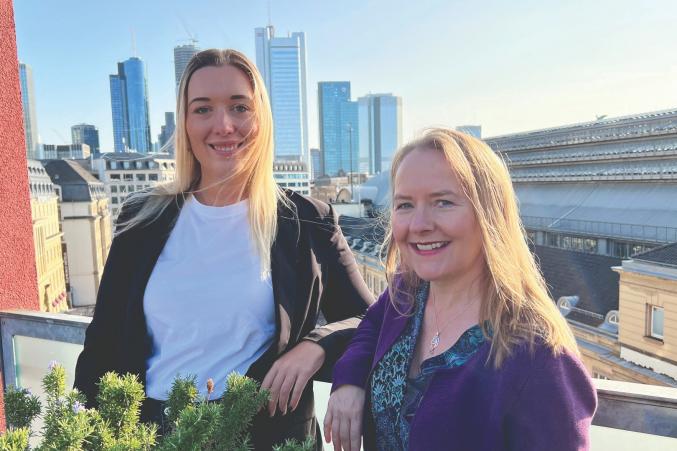
Partner Portrait
FrankfurtRheinMain International Office
Are you looking for Germany’s best place? We are convinced that you can find it in FrankfurtRheinMain!

How to Apartment Hunt
When looking for a property, it always helps to dress for the occasion. Due to the shortage in the housing market, landlords often choose between several candidates.
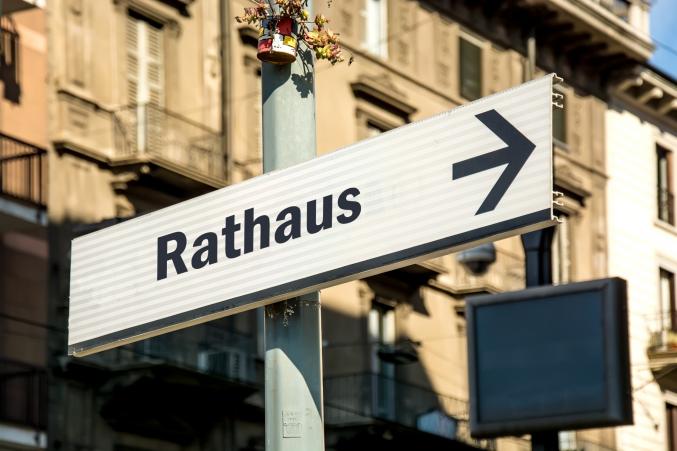
Registration
Germany, you‘ll soon discover, is a very well-run country. But bureaucracy is a price for keeping a well-run operation.
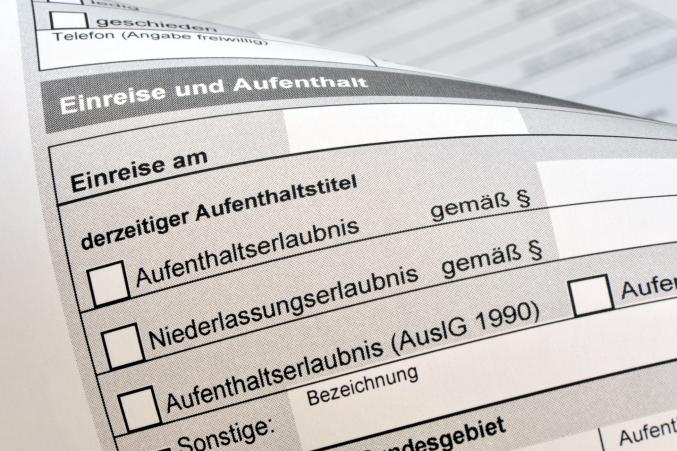
Residency and Work Permits
Citizens of the EU, as well as Iceland, Liechtenstein, Norway and Switzerland, are permitted to work and live in Germany without a work or residence permit.

Choosing a Relocation Agency
The range of services on offer to assist in international relocations is extensive, but not all of the services will be applicable to every expatriate.

Moving with Children
Even if your belongings have arrived on time and your house hunt has gone well, it’s important to make sure your kids feel at home.

Getting Married in Germany
If you become smitten with love during your stay in Germany, there is a chance you’ll want to get married.

Nannies
Often, international families hire a profession nanny to help look after small children, particularly if both parents are in full-time employment.

